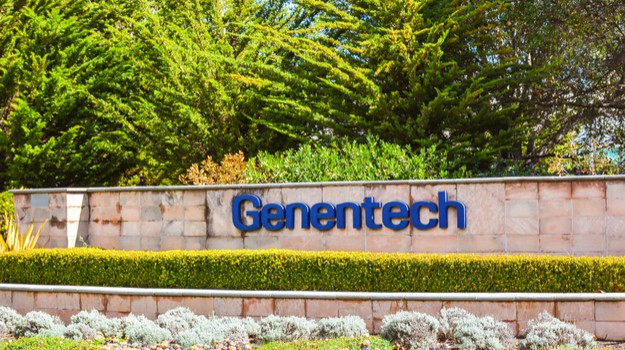Genentech, a Roche company, announced positive topline data from two identical Phase III trials of faricimab in diabetic macular edema (DME). Both studies, YOSEMITE and RHINE, hit their primary endpoint, demonstrating that faricimab dosed every eight weeks and at personalized dosing intervals of up to 16 weeks, was non-inferior compared to Regeneron’s Eyelea (aflibercept) given every eight weeks.
DME is a complication of diabetic retinopathy (DR) that can cause blindness. DR is caused by damage to blood vessels and the formation of new blood vessels in the eyes that causes blood and fluid to leak into the retina. This causes swelling and a blockage of blood supply to some parts of the retina. DME is when the damaged blood vessels leak into the macula and cause swelling. The macula is the central area of the retina responsible for the sharp vision required for reading and driving.
DME affects about 750,000 people in the U.S. and is expected to grow because the prevalence of diabetes is increasing.
Faricimab is a bispecific antibody designed specifically for the eye. The molecule targets two pathways that cause a number of retinal diseases. The pathways are angiopoietin-2 (Ang-2) and vascular endothelial growth factor-A (VEGF-A). Both pathways can cause vision loss by destabilizing blood vessels, causing new leaky blood vessels to form and creating inflammation. Faricimab independently blocks both pathways, stabilizing blood vessels.
“These positive results show that faricimab has the potential to offer lasting vision improvements for people with diabetic macular edema, while also reducing the treatment burden associated with frequent eye injections,” said Levi Garraway, Genentech’s chief medical officer and head of Global Product Development. “We look forward to discussions with global regulatory authorities, with the aim of bringing this potential new treatment option to people with this condition as soon as possible.”
YOSEMITE and RHINE are identical studies evaluating the efficacy and safety of faricimab compared to Regeneron’s Eyelea (aflibercept) in a total of 1,891 DME patients, 940 in YOSEMITE and 951 in RHINE. The primary endpoint was the average change in best-corrected visual acuity (BCVA) score—the best distance vision achievable, including with correction such as glasses, when reading letters on an eye chart, at one year. Secondary endpoints included safety, the percentage of participants in the personalized dosing arm that received treatment every four, eight, 12 and 16 weeks, at week 52, the percentage of patients hitting a two-step or greater improvement in DR at week 52, and the percentage of patients who gained at least 15 letters in BCVA from baseline over time, and the percentage that avoided a loss of at least 15 letters in BCVA, as well as changes in central subfield thickness from baseline over time.
Genentech is also evaluating the drug in the Phase III Rhone-X trial to evaluate the long-term safety and tolerability of faricimab for treatment of DME. It is also in the Phase III TENAYA and LUCERNE trials for neovascular or “wet” age-related macular degeneration (nAMD). This advanced type of AMD can cause rapid, severe and irreversible vision loss.
Genentech plans to present detailed data from the YOSEMITE and RHINE trials in February 2021 at the Angiogenesis, Exudation, and Degeneration 2021, a medical symposium presented by Bascom Palmer Eye Institute of the University of Miami Miller School of Medicine. It plans to submit the drug for approval for DME to regulators globally.

